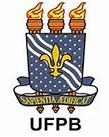SCHOOL TRAJECTORIES OF UNDERGRADUATE STUDENTS IN SOCIAL SCIENCES AT THE FEDERAL UNIVERSITY OF PARAÍBA (UFPB)
DOI:
https://doi.org/10.46906/caos.n28.62687.p102-117Keywords:
youth, educational policies, school trajectory, social sciencesAbstract
This research report is based on texts produced by undergraduate students in Social Sciences at the Federal University of Paraíba (UFPB) about their school trajectories. The research was carried out within the scope of the discipline “Education and Society” in partnership with tutorial projects. Fragments of these texts were selected, highlighting positive and negative experiences, expectations, difficulties and significant strategies of/in student life. We especially privilege reports on racism, gender issues and the importance of public educational policies, such as affirmative politics, scholarships and student aid. However, it is important to emphasize that it was not our aim to trace a student profile. Some experiences were more common, others more individual. In this report, by bringing them together, our objective was to get to know a little more the trajectories of these students, seeking to recognize potentials that can be better explored and weaknesses that must be more carefully observed by the faculty members and by UFPB in general.
Downloads
Metrics
Published
Issue
Section
License
Copyright (c) 2022 Aína Azevedo Guimarães, Joery, Mariana

This work is licensed under a Creative Commons Attribution-NonCommercial 4.0 International License.
A Caos é regida por uma Licença da Creative Commons (CC): CC BY-NC 4.0, aplicada a revistas eletrônicas, com a qual os autores declaram concordar ao fazer a submissão. Os autores retêm os direitos autorais e os de publicação completos.
Segundo essa licença, os autores são os detentores dos direitos autorais (copyright) de seus textos, e concedem direitos de uso para outros, podendo qualquer usuário copiar e redistribuir o material em qualquer suporte ou formato, remixar, transformar e criar a partir do material, ou usá-lo de qualquer outro propósito lícito, observando os seguintes termos: (a) atribuição – o usuário deve atribuir o devido crédito, fornecer um link para a licença, e indicar se foram feitas alterações. Os usos podem ocorrer de qualquer forma razoável, mas não de uma forma que sugira haver o apoio ou aprovação do licenciante; (b) NãoComercial – o material não pode ser usado para fins comerciais; (c) sem restrições adicionais – os usuários não podem aplicar termos jurídicos ou medidas de caráter tecnológico que restrinjam legalmente outros de fazerem algo que a licença permita.
Recomendamos aos autores que, antes de submeterem os manuscritos, acessem os termos completos da licença (clique aqui).
















